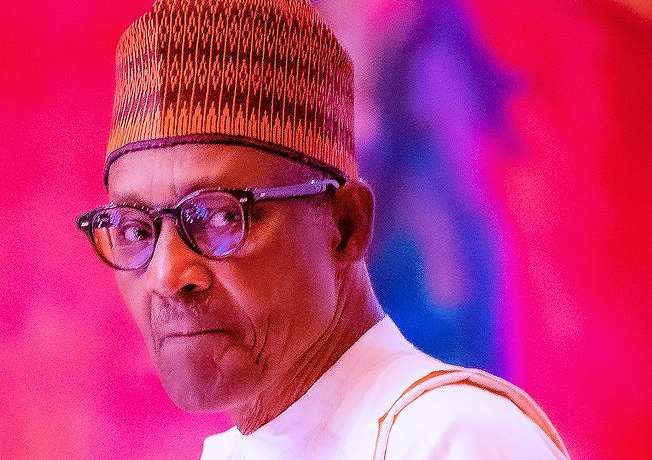Leaders love to write memoirs. Some write theirs by themselves. Others hire professional writers to craft the records for them. By whoever such accounts are written, the essence is to present the leader as a hero, an achiever, a problem solver, the one who pulled the economy or a nation from the brink, or the one who succeeded where others failed, etc. Thus, military generals, political and national leaders, corporate, and even religious leaders, have availed us of their escapades or adventures that changed the course of history.
The world has become richer and intellectually better off because of such accounts, some of which become textbooks in business schools, corporate and political leadership training, and business and military strategies. Teachers recommend such books in the hope that their students, usually very high executives in their organisations, can distil from such accounts relevant strategies to apply to their own challenges.
President Muhammadu Buhari, who left office two days ago, gave a hint of a possible title for his memoirs at the investiture of then president-elect, Bola Tinubu, as the Grand Commander of the Order of the Federal Republic (GCFR) and vice president-elect, Kashim Shettima, as Grand Commander of the Order of the Niger (GCON).
In a statement that made the headlines across the media, Buhari said: “I have run a good race, I have finished my course. It is now time for another to take up the baton’’.
PHOTOS: Daura Emirate holds durbar to welcome Buhari
Stock market gains N1.51trn after Tinubu’s inauguration
The president’s words echoed the words in the Bible, in Second Timothy, Chapter 4, verse 7: “I have fought a good fight, I have finished my course, I have kept the faith.”
I once had the opportunity of meeting with former American President Jimmy Carter and his wife, Rosalyn, in Harare, Zimbabwe in 1989, long after he left office in 1981. Before then I had read his memoirs, with the title ‘Keeping Faith’.
Before him was the man, Gerald Ford, who led America through one of its most fractious and tortuous periods in history. By sudden twists of fate, Ford rose from being the minority leader in the US House to the vice president after the forced resignation of former VP Spiro T. Agnew. Then he became president following Nixon’s impeachment over the Watergate scandal. America was also mired in the Vietnam War, plus a ravaging inflationary pressure of about 9 per cent then. At the end of his tenure, Ford’s biggest concern for America showed in his memoirs: “A Time to Heal”.
Finishing the course in the sense of just being in office for eight years is a defective way of appraisal, not even a self-appraisal. The president of a country does not run for himself, nor does he just occupy office so he can engage in self-adulation at the expiration of his term. The leader runs for the people; he runs for their sake and takes the responsibility of living for them. Their course becomes his course, so at the end of his term, an objective assessment of the course, whether accomplished or not, is from the point of view of the people, who are the objects of the president’s eight-year course. It is not his.
There comes a time when those on whose behalf the leader holds sway have to pass their verdict on the one who held power on their behalf with the promise to use it to their full advantage. This is what modern political economy is all about – people surrender their political will and power to a man who then symbolizes their collective desires, wishes, aspirations, and expectations. That is the concept of “mandate”—the people willingly give to the leader the power or right, on their behalf, to lead them, take decisions on their behalf for their collective good, etc.
Arriving at the departure lounge at the end of one’s tenure without a true sense of accomplishment is the political equivalent of the concept of growth without development. This is what Nigeria has suffered from over the years, on the economic scene. Our agencies reel out volumes of economic data purportedly to show us how well the economy has performed; we are fed with figures on GDP growth, trillions of naira budgeted or appropriated by the legislature, and other indicators that show economic activity. But when it comes to the point that matters most, human development, the quality of life, and how much the state has positively impacted that, the story changes. Growth fizzles and the state or the quality of the citizens’ life takes the backseat.
It is like a passenger train that travels hundreds of kilometres to get to its destination. It gets to the destination quite alright, but the train is half-empty. Most of the potential passengers are still at their various stations, left behind by the speeding train. While it has made the journey to the destination, the real question should be: at what level of efficiency did the train complete the course?
From this incomplete, finished course, the nation must turn to the urgent task of healing the fractured polity and economy.
The former president’s finished course is questionable. This country needs urgent healing. To show this, while Buhari and President Tinubu were still at the Parade Ground in Abuja on Monday, the supply of petrol dried up all over the nation in a jiffy. Petrol stations across the country stopped selling the product, queues emerged just because the new president said the subsidy had ended.
Yet, for eight years, the administration that ended two days ago chose to play hide-and-seek with the issue of subsidy. Is this the way to finish one’s course?

 Join Daily Trust WhatsApp Community For Quick Access To News and Happenings Around You.
Join Daily Trust WhatsApp Community For Quick Access To News and Happenings Around You.